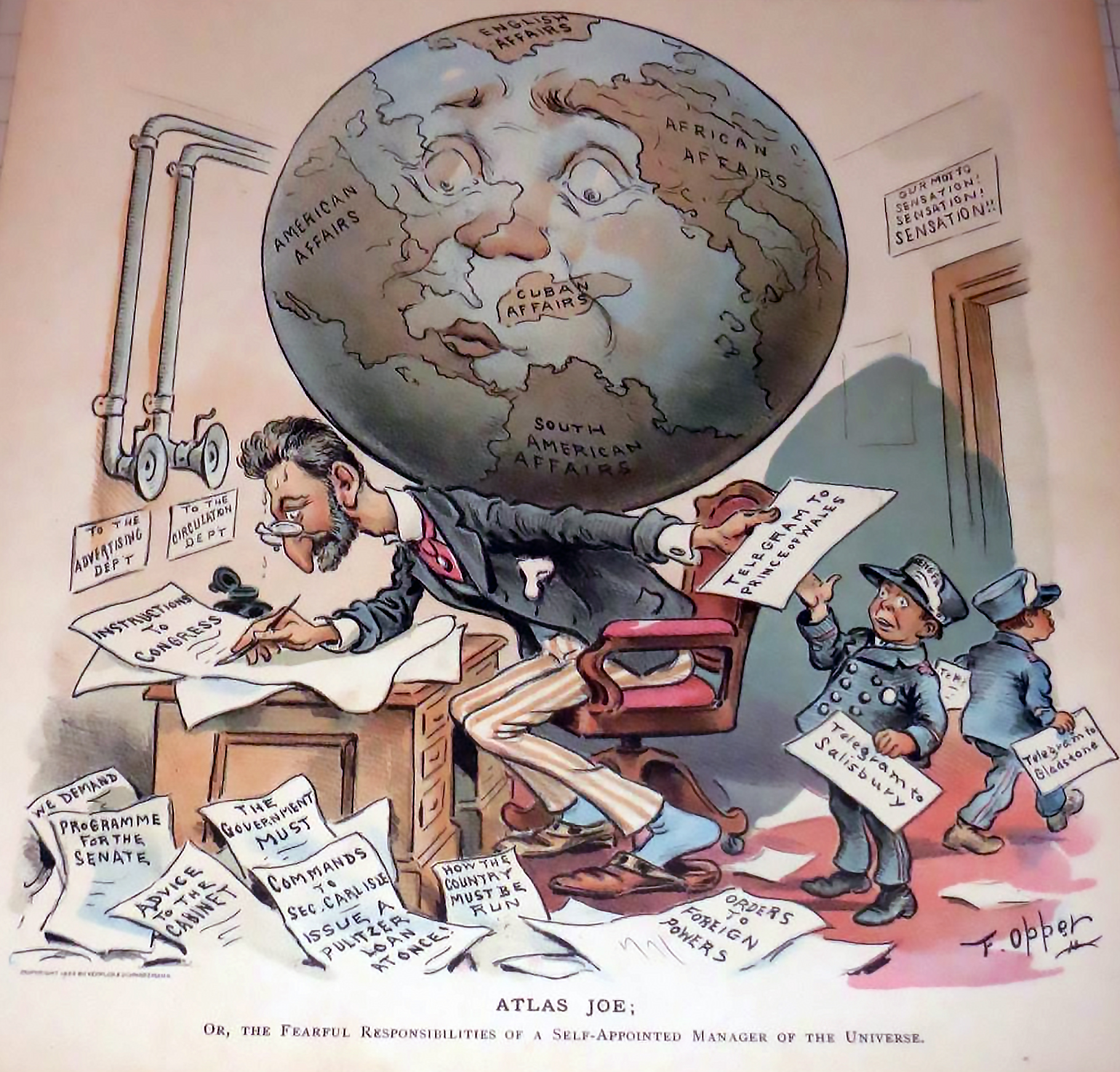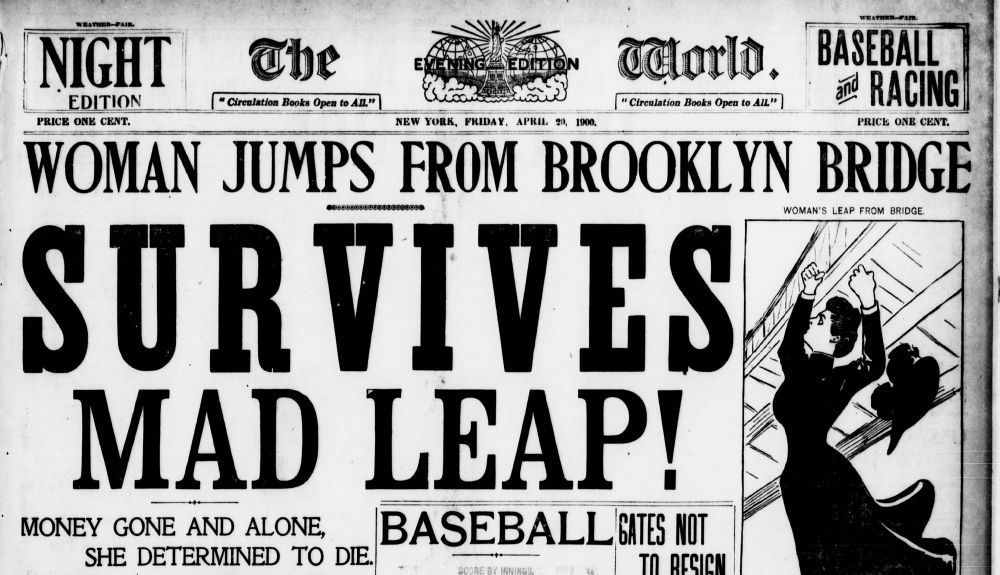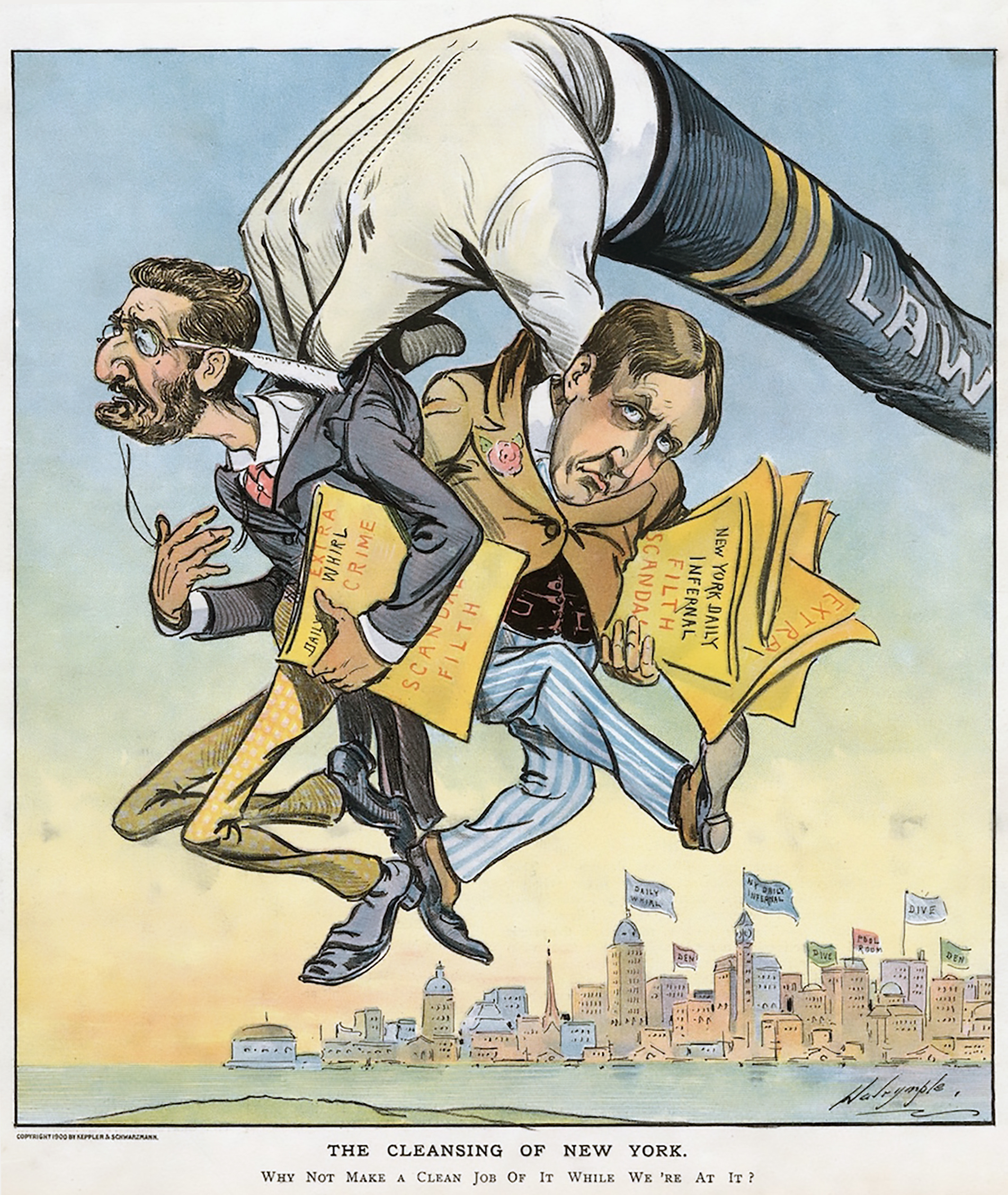
Far Left propagandists at the New York Times were at it again last week, implying President Trump was paying little or no taxes. Two years ago, they cooked up a similar hit job before Brett Kavanaugh’s confirmation as a Supreme Court justice and the mid-term elections. Two of the apparatchiks responsible for that hatchet job (Russ Buettner and Susanne Craig) worked on this latest effort. Mike McIntire joined them to replace David Barstow, fired from NYT for violating their “ethical guidelines.” Barstow allegedly risked exposing a source used for the trio’s 2018 beat-up – the infamous Mary Trump. If the NYT were so ethical, they would not be using her as a source in the first place.
All three “reporters” won the much discredited Pulitzer Prize for their efforts to create nothingburgers, whether to do with Trump’s taxes or Russia, Russia, Russia nonsense. The Pulitzer has become a badge of dishonor amongst Far Left propagandists, who keep piles of them on bookshelves beside Che Guevara photos and dog-eared Communist Manifestos.
Utilizing adverbs, verbs, nouns, adjectives, and tone, they spray anyone they dislike with sinister paint – even a little old lady making breakfast. The schoolboy technique employs adverbs, adjectives, and impressions based on hearsay and gossip instead of hard facts or genuine evidence.
“The relatively minor audit of a $72.9 million tax refund is still not resolved.”
Becomes
“The unresolved audit of his $72.9 million tax refund hangs over his head.”
Trump’s minor audit
The audit of a $72.9 million tax refund began a decade ago when Democrats governed both New York and the U.S.A. Most conservative businessmen endure similar audits when Democrats are in charge, and it is a trivial issue for Trump, whose wealth is estimated to be $2.5 billion. He would laugh at their “hangs over his head” description. Clutching at straws, our three Pulitzer Putzes bring up the same audit 17 times in the article:
1. an audit battle
2. hanging over him is a decade-long audit battle
3. The tax audit looms
4. the looming I.R.S. audit
5. is at the center of the audit battle
6. an ongoing audit
7. the details of the audit
8. audits of his returns
9. an audit by the I.R.S.
10. the approval of I.R.S. auditors
11. of an audit of Mr. Trump’s refund
12. the audit resumed
13. If the auditors ultimately
14. a question about the audit
15. The unresolved audit… hangs over his head.
16. ongoing federal audits of his taxes
17. He often claims that he cannot [release his taxes] while under audit — an argument refuted by his own I.R.S. commissioner
Number 17 is a classic misinterpretation of Trump’s meaning and two logical fallacies: Red Herring and Appeal to Authority. If Trump says he can’t release his taxes while an audit continues, he means he is following his accountant’s advice, and we all use this form of “can’t” in everyday speech.
Common use of ‘can’t’ in English
George declares he is going to the shop to buy some bananas, but it starts hailing outside, so he waits.
“I thought you were going to the shop,” says Jane, his wife.
“I can’t,” George replies. “It’s hailing.”
Jane calls the Police Commissioner. “Can my husband go to the shop if he wants?” she asks.
“Yes,” the Commissioner grunts, annoyed by the question.
“Ah-hah!” Jane shouts, hanging up. Turning to George, she yells, “You say you can’t go to the shop, yet the police commissioner refutes that!”
“The police commissioner?” George sighs. “Why bring him into this?”
“He’s an authority,” Jane clucks.
“It’s hailing outside!” George declares. “Of course, I can walk there, but I won’t while it’s hailing.
“Ah, so you should have said won’t, not can’t,” Jane gloats.
“No,” states George. “Saying can’t is just an expression, not to be taken literally, and everyone does it, including you.”
“I do?”
“Sure. Last night I wanted sex, remember? What did you say?”
“Oh yeah,” Jane laughs. “Sorry, I was never much good with the nuances of English.”
All of us use the term “I can’t” when, in reality, we can. Donald Trump could say, “Accountants have advised me it would be a bad move businesswise to release taxes while under audit, so I choose not to do so,” but the man is in a hurry, so he sums it up with, “I can’t.” This use of “can’t” as a shortcut is something that Susanne Craig, Russ Buettner, and Mike McIntire grew up using. Hence, their deliberate mischaracterization of Trump’s words is impish and deceitful. As generators of Fake News, they deliberately ignore the everyday use of English by conservatives like Donald Trump.
Scene: How ‘can’t’ may be used in a New York Times office:
Susanne Craig: Who wants a pickled egg?
Russ Buettner: I can’t. They make me fart.
Mike McIntire: I can’t either; I’m Vegan.
Russ: Coffee, anyone?
Susanne: I can’t – stains my dentures.
Mike: Black with a shot of Irish, thanks.
Russ: I can’t – we’re saving the moonshine for tonight.
Mike: Oh yeah, Abdul’s party. You going, Suze?
Susanne: I can’t – he insulted me about my body yesterday.
Mike: He what? He can’t do that! How?
Susanne: I can’t say – it was too rude.
Mike: I can’t believe that asshat.
Susanne: Anyhoo, I can’t talk about that, so let’s get back to this Trump beat-up.
Russ: Yeah, and we’ll mention the audit 17 times.
Mike: That would be too persnickety, surely.
Susanne: Aren’t we always persnickety?
Russ: He’s yanking your chain.
Mike: Got you again, Suze. Yaaaaghhh . . .
Susanne: Seriously? I can’t believe you guys. Okay, so where were we?
Mike: Trump said he can’t release his taxes.
Susanne: Oh yeah. What a liar!
Russ: Scandalous!
Mike: Let’s hope he dies from COVID!
In reality, everything Trump does is legal, which is why Mueller’s witchhunt was a failure. Trump’s accountancy practices are used by most entrepreneurs, including those who own Amazon, The Washington Post, The New York Times, and CNN. Trump pays plenty of taxes, including all his employees’ income taxes, and then there are import & export duties, fees, charges, levies, tariffs, and rates. These are all taxes with different names, as governments love camouflage. Fake News will only mention these when the sun freezes over.

Pulitzer Putzes and Fake News
If you look at a Pulitzer Prize medallion, the inscription reads:
For the most disinterested and meritorious public service rendered by any American newspaper.
Many may not realize it, but ‘disinterested’ means unbiased.
Cambridge Dictionary: ‘Having no personal involvement or receiving no personal advantage, and therefore free to act fairly.’
Oxford Dictionary: ‘Not influenced by considerations of personal advantage.’
Ninety-eight percent of the media produce Fake News designed to harvest votes for the Democrats. Since their owners, managers, editors, and reporters are Democrats, their motives are entirely biased, full of personal advantage, and utterly influenced by partisan politics. The Pulitzer Medal is handed out to most of them with gay abandon but never to conservative newspeople.
So who was this knucklehead, Pulitzer, anyway?

József Pulitzer was born in Hungary in 1847. By 11, his family was bankrupt, and József was an impoverished orphan. At 17, the homeless, sickly teenager was desperate for work. He was a devout socialist by this time and hated capitalists with a passion. Though he could speak German, Hungarian, and French, his bad health, shabby appearance, and poor eyesight made him unemployable. Eastern European armies paid soldiers to enlist, so Pulitzer tried joining each but was rejected by all. Hearing that desperate American military recruiters offered Europeans free passage and wages, József Pulitzer applied.
Speaking no English, the threadbare Hungarian Jew persuaded European agents to let him go, but Massachusetts recruiters were not impressed upon his arrival. Angry and desperate for money, József (now Joseph) Pulitzer made his way to New York, where the Lincoln Cavalry, mostly German immigrants, grudgingly accepted him. He cared not which army he joined as long as they paid wages. With his weak eyesight and stunted appearance, Pulitzer was not much to look at physically, but as some said in those days, as long as you had a pulse, the New York recruiters would take you.
Unfit to ride horses into battle, Pulitzer was provided safer jobs, cleaning stables, garbage collection, peeling potatoes, and other minor duties, but not speaking English was a significant handicap. After a few months, he finished with the army and gave the whaling industry a try, with predictable results. Rejected once more, Pulitzer became a homeless bum in New York, sleeping under bridges, presumedly begging for food. Illegally climbing aboard railway freight train cars, he traveled to Missouri as a boxcar hobo.
The pauper found work tending to mules but was fired two days later. As a belligerent socialist, Pulitzer was too proud and temperamental to take orders and too scrawny for heavy labor. A wealthy restaurant owner took pity on him, cleaned him up, gave him a uniform, and employed him as a waiter. Soon after, he was fired for dropping a tray of beer all over a diner. Some say it was deliberate – that he heard a businessman boasting of his wealth and could not stop himself from dousing the man in beer. Out in the street, angry, hungry, and back in rags, it is no surprise the Far Left tramp vowed to get revenge on wealthy businessmen.
Revenge
Spending much time in free libraries, Pulitzer learned English and voraciously read left-wing German philosophers like Hegel, many of whom would influence Karl Marx. He made friends with German socialists. In 1870, he cheated his way into politics through these connections, becoming a state representative in Jefferson City, Missouri, three years under the required age. His first mission was to pack the St. Louis County Court, trying to replace its seven judges with nine newly elected judges, knowing most would be Democrats. Pulitzer failed to achieve his goal, but during the attempt, he began a feud with Captain Edward Augustine, the Superintendent of Registration for St. Louis County.
Pulitzer – a Murderous Thug
January 1870, in the Schmidt Hotel, Jefferson City, Captain Augustine called Joseph Pulitzer a liar. Pulitzer went to his room to retrieve his four-barreled pistol, being too cowardly to take Augustine on with words. Upon returning, the pint-sized thug aimed his gun at Augustine’s heart. Before he could pull the trigger, Augustine tackled Pulitzer, who then fired two shots, one of which tore through Augustine’s right knee. The man would walk with a limp for the rest of his life. Police charged Pulitzer with assault and intent to kill. The case ended with Pulitzer being fined $105, with $400 costs, all paid by his political friends. Lefties have a long tradition of paying felons’ fines and bailing them out of jail.
Journalist and Newspaper Owner
Pulitzer’s attempt at murdering Captain Edward Augustine ended his political career, so he began investing in newspapers. Not surprisingly, from an East European lowlife, he lowered the bar on journalism, creating America’s first gossip rags. Full of sensational stories, scandals, crime, disasters, lying cartoons, and leftist claptrap, the papers helped Democrats change America for the worse. Pulitzer’s broken English, bad eyesight, murderous temper, and hatred of capitalism made him a difficult editor to work beside. Still, his newspapers were popular with the unwashed masses, who followed his political wagon train straight toward Leftist Lunacy. Like all hypocrisy-blind rich socialists, Joseph Pulitzer became very wealthy in the process and held onto his money with a tight fist.
Murder
Violence and guns had a habit of following Pulitzer around. In 1882, through his newspaper, the Post-Dispatch, of St. Louis, Missouri, Pulitzer ridiculed and denounced Republicans, using lies, exaggeration, innuendo, and mockery. One of his conservative victims was Alonzo W. Slayback, a prominent attorney in St. Louis. Slayback went to the Post-Dispatch to seek retribution. He intended to slap the editor’s face and demand an apology. The editor, John Cockerill, had called Slayback a coward.
Upon entering the editor’s office, Slayback began to remove his coat. As he did so, while his left arm was up, John Cockerill, Pulitzer’s editor, aimed a gun and shot Slayback through the armpit. The ball made an inch-wide hole as it passed through Slayback’s lungs from left to right, severing his aorta on its passage, which produced a hemorrhage. As blood filled Slayback’s mouth, his friend, William H. Clopton, grabbed Cockerill and forced his gun down, preventing him from shooting again. He then cradled Slayback, who lay on the floor, as he died.
Though Pulitzer’s editor, John Cockerill, was charged with murder in the second degree, accused of a willful and deliberate shooting, Pulitzer and others rallied to his aid. After bailing him out of jail for $10,000, a huge amount in those days, they began working on various political allies to get their murderer off the hook. As a result, Cockerill was never put on trial. The murder permanently damaged Pulitzer’s reputation in St. Louis, so he began to seek opportunities elsewhere.

New York
In 1883, Pulitzer purchased the failing New York World, turned it into another gossip rag, and boosted its sales. He spent the rest of his years supporting Democrats, railing against the rich, encouraging anti-trust laws, and generally making it difficult for entrepreneurs to thrive. If it helped socialists, he was all for it.
The mischievous Hungarian died in 1911, at 64, and was interred in a Bronx cemetery in New York. Six years later, New York’s Columbia University set up Pulitzer awards for newspaper journalists, and Far-Left reporters have received them ever since. The recipients of such medals are branded forever as makers of Fake News and an enemy of the people, in my view.
An army of Pulitzer journalists has turned Americans against America for the last century. You can see the result in Democrat cities across the land, as Antifa and Black Lives Matter criminals burn, loot, and murder. Pulitzer’s corpse is probably smiling, while Democracy cracks and falls apart. No wonder – he played a major role in its demise.







